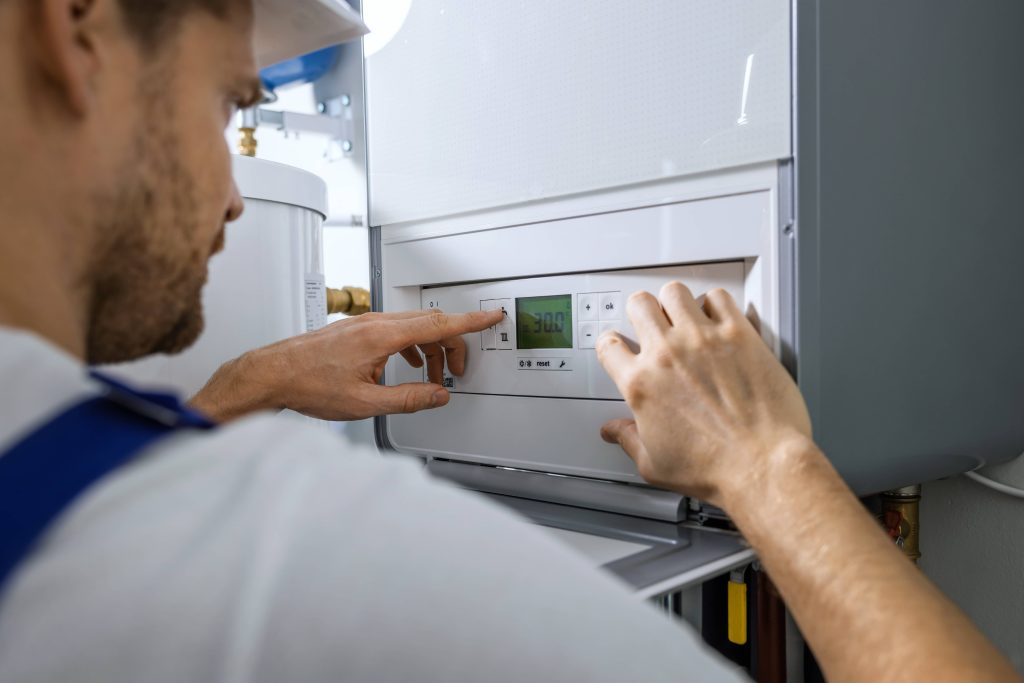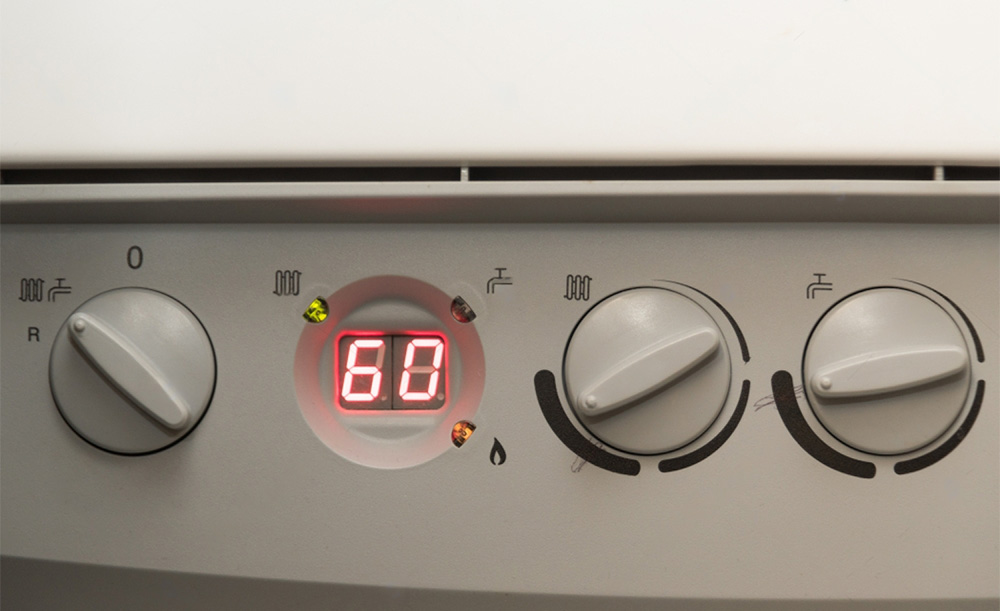Introduction
As our homes become smarter and more efficient, the humble combi boiler remains a cornerstone of domestic comfort. This guide will delve deeper into the inner workings, advantages, and selection of combi boilers to ensure you’re both informed and confident in your understanding.
Table of Contents
- What Makes Combi Boilers Unique?
- The Science Behind Its Operation
- Key Advantages
- Choosing the Right Combi Boiler for Your Home
- Maintenance and Troubleshooting Tips
- Frequently Asked Questions
- Conclusion and Resources
What Makes Combi Boilers Unique?
While the term ‘combi’ might sound sophisticated, it simply denotes ‘combination’. These boilers combine two functions:
- Water Heating: They provide instant hot water without the need for a separate tank.
- Central Heating: They warm up your home’s radiator system.
Their dual functionality and compact design make them a favorite among modern homes, especially in areas with space constraints.
The Science Behind Its Operation
When you turn on a hot tap or your heating system, the combi boiler springs into action:
- Water Intake: It draws water directly from the mains, which ensures a steady water pressure.
- Heat Exchange: A heat exchanger transfers energy from the burned gas to the water.
- Delivery: The heated water is then immediately sent to your taps or radiators.
No water is stored, which means you’re getting hot water on-demand, reducing the wait time. In this video Andrew shows why the Viessmann Vitodens 100is so good.

Key Advantages
- Space-Saving Design: Traditional boilers often require a separate water tank, which takes up a significant amount of space. In contrast, combi boilers integrate both the central heating boiler and hot water heater into one unit. This compact design is perfect for smaller homes and flats where space is at a premium.
- Instantaneous Hot Water: One of the standout features of combi boilers is the ability to provide hot water on demand. Since they heat water directly from the mains supply when you turn on a tap, there’s no waiting for water to warm up, which is particularly beneficial during peak morning or evening times. Furthermore, this feature becomes exceedingly useful when the demand for hot water in a household is high.
- Energy and Cost Efficient: Combi boilers are designed to be highly efficient, especially the newer models. They only heat the water that is being used, which means there’s no wasted energy in heating a large tank of water that might not be used. Over time, this efficiency can translate to significant savings on energy bills.
- Easy Installation: Without the need for a separate water tank or cylinder, the installation process for combi boilers is often simpler and quicker. This can also translate to reduced installation costs. Furthermore, maintenance is typically straightforward, given the boiler’s compact nature.
- Safety: Combi boilers come with multiple safety features, including pressure relief valves and thermostat regulators. Since there’s no need for a water tank, the risks of tank bursts or leaks are eliminated. Furthermore, the sealed systems significantly reduce the risk of a carbon monoxide leak.
- Better Water Pressure: As water is delivered directly from the mains supply, many homeowners find that they experience better overall water pressure for their showers and taps with a combi boiler, especially when compared to traditional systems which can lose pressure over time.
- Less Likely to Experience Frost Damage: Given their compact size and indoor installation, combi boilers are less exposed to external elements. This reduces the likelihood of frost damage during colder months, ensuring consistent performance year-round.
- Eco-Friendly Options Available: Modern combi boilers often come with environmentally-friendly features. For example, some models are compatible with solar thermal heating, which can further reduce a household’s carbon footprint and energy bills.

By considering the advantages of combi boilers, it’s easy to understand their growing popularity in households. They provide a modern solution for home heating and hot water needs, blending efficiency, convenience, and safety. If you’re thinking of upgrading or installing a new boiler system, the combi boiler stands out as an excellent choice.
Choosing the Right Combi Boiler for Your Home
Selecting the ideal combi boiler requires a blend of research, professional advice, and consideration of your specific needs. Here’s a step-by-step guide to help you make an informed decision:
- Assess Your Home’s Size and Water Needs:
- Size of Property: Larger homes with multiple bathrooms may require a more powerful boiler to handle simultaneous demands.
- Water Usage: How many people live in your home? Do you often have multiple showers running at once or use a lot of hot water simultaneously? Your usage habits play a crucial role in deciding the boiler’s size.
- Energy Efficiency:
- Look for boilers with an A rating or above, as these are the most energy-efficient models available. The higher the efficiency, the more you’ll save on energy bills over time.
- Some boilers come with additional features like condensing technology, which recycles heat from exhaust gases to heat incoming cold water, further improving efficiency.
- Compatibility with Solar Heating:
- If you’re environmentally conscious and have or are considering solar panels for heating water, ensure your boiler choice is compatible.
- Check the Warranty:
- A longer warranty is not just peace of mind; it’s an indication of the manufacturer’s confidence in their product. Look for models that offer extended guarantees.
- Brand Reputation:
- Research various brands and see which ones have the best reviews and longevity. Established brands often have a proven track record of reliability and performance.
- Budget:
- While it’s essential to get a good deal, the cheapest option isn’t always the best. Consider the boiler’s efficiency, lifespan, and potential repair costs. Sometimes, investing a bit more upfront can save money in the long run.
- Size of the Boiler:
- Combi boilers come in various sizes. While they are generally compact, it’s essential to ensure that the boiler you choose fits comfortably in the designated space. Moreover, whether it’s a kitchen cupboard or a utility closet, the space should accommodate the boiler seamlessly.
- Professional Consultation:
- Always consult with a heating engineer or specialist before making a final decision. They can provide insights into the best models for your home’s size and your specific needs.
- Features:
- Some modern combi boilers come with advanced features such as digital displays, smart thermostat compatibility, or even remote control through smartphone apps. Determine which features are most important to you and find models that fit the bill.
- Environmental Impact:
- Consider boilers that produce lower carbon emissions. In addition to being environmentally friendly, these boilers may also qualify for government grants or incentives.
Remember, the right combi boiler for your home is one that meets your specific needs, is energy efficient, fits within your budget, and comes from a reputable brand. With careful consideration and a bit of research, you’ll find the perfect fit for your home.
Maintenance and Troubleshooting Tips
Ensuring longevity and optimal performance of your combi boiler hinges on regular maintenance:
- Annual Checks: A professional checkup can identify potential issues early on.
- Monitor Pressure: Keeping an eye on the boiler pressure can help avoid many common problems.
- Bleeding Radiators: If radiators aren’t heating up evenly, they may need bleeding.
Encountering issues? Our troubleshooting guide is an excellent resource.
Frequently Asked Questions
- Are combi boilers suitable for large families?
- Depending on the model and its capacity, combi boilers can efficiently serve large households.
- How long do they typically last?
- With proper maintenance, a combi boiler’s lifespan can extend up to 15 years.
For further questions or assistance, contact us and we will send out an expert heating engineer.
Conclusion and Resources
Combi boilers, integral to many households, seamlessly integrate modern technology with essential utility. By understanding their operations and maintenance, homeowners can ensure warmth and comfort for years to come.
See the areas we cover by clicking here.

Ariston

Valliant

ATAG

Worcester

Alpha Heating

Ideal

Glow Worm

Viessmann

Potterton

Honeywell

Baxi

Vokera

Ferroli

Keston

Sime
